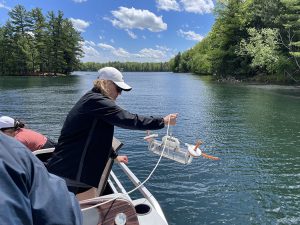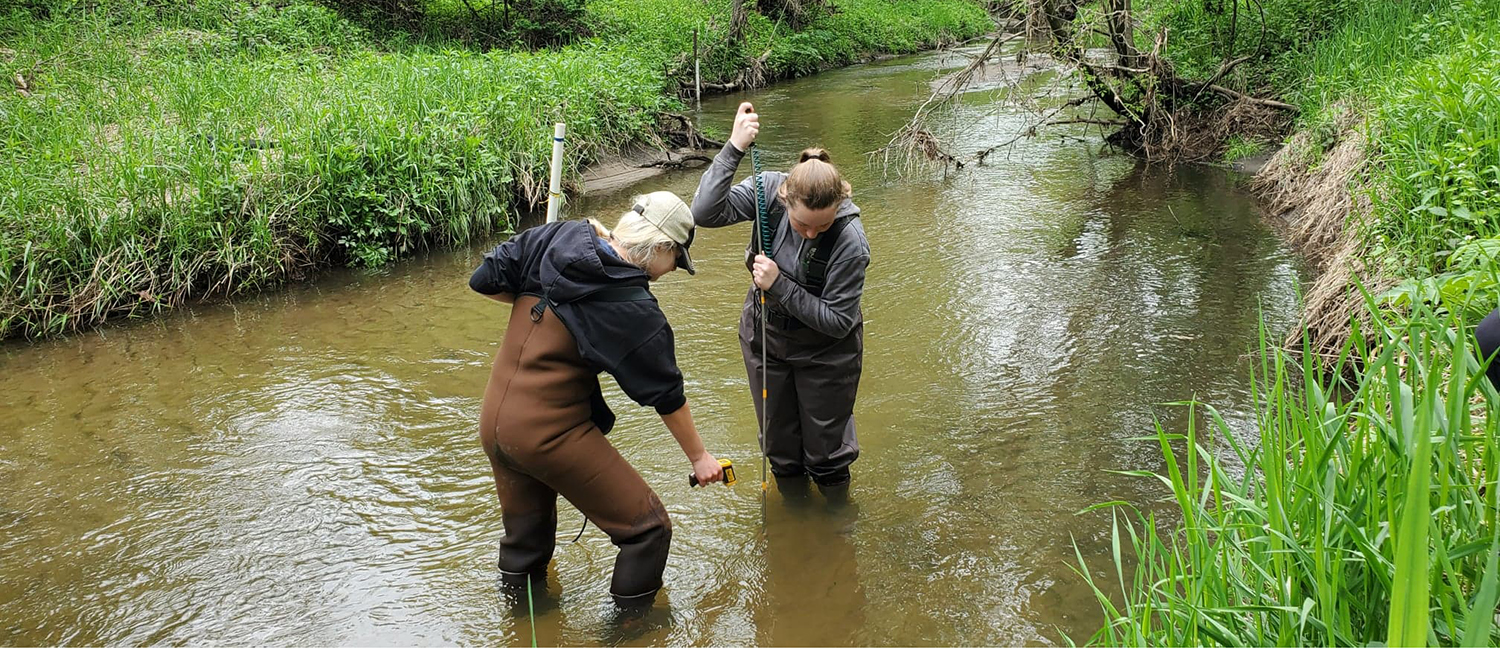Watch the video created by the UW-Eau Claire communication team.
Nine undergraduates from UW-Eau Claire and UW-River Falls spent an intensive two weeks in June exploring and conducting research in rivers, watershed and creeks through enrollment in a new Western Wisconsin Advanced Freshwater Science field course.
Funded by the Freshwater Collaborative of Wisconsin, the hands-on field course is a collaboration among UW-Eau Claire, UW-River Falls, UW-Stout and UW Oshkosh that brought together instructors with expertise in geology, biology, environmental science, geography and agricultural science to provide a unique opportunity for students majoring in degrees related to freshwater science. The students involved included biology, ecology, environmental geography and environmental science majors.
The goal was to create a field experience involving skills and tools used across a variety of freshwater science disciplines. Maggie Guetschow, environmental geography major at UW-Eau Claire, appreciated the multidisciplinary approach.
“You’re going to have to have collaboration between fields in order to solve these really complex issues that we’re looking at with our environment,” she says. “It’s very important and incredible to have a course like this that you can have so many people with so many different pieces of expertise that they’re able to give us and give us background in their different areas of study.”
Sarah Vitale, an assistant professor at UW-Eau Claire and the lead instructor, says this type of course didn’t previously exist within a traditional degree curriculum.
“There are always limitations to what an individual department or institution can offer, and the Freshwater Collaborative of Wisconsin is breaking those barriers, allowing us to build something beneficial for students and faculty in the UW system,” Vitale says.
Vitale says the instructors were impressed with the level of student engagement and positive attitudes — even when it was pouring rain and cold. Students participated in a diverse number of field experiences during the eight-day course, including:
- bacteria sampling and culture analysis in Lake Menomin
- exploring urban Galloway Creek restoration site
- touring land use practices in the Red Cedar Watershed
- water quality sampling and biotic index analysis in Gilbert Creek
- hydrogeologic field assessment in the South Fork Kinnickinnic River
- an up-close tour of the River Falls Agriculture practices
- building and installing lysimeters
- water quality assessment and fish counts in Pine Lake, the Little Niagra Creek and Beaver Creek
- exploring phytoremediation practices at WRR Environmental
Not only did students benefit from the range of experiences and the multidisciplinary approach, but they gained perspective about their future career options.
“It really helps me get a feel for what kinds of opportunities I can have when I graduate, and also it helps me figure out what I like to do and what I don’t like to do,” says Sydney Schermerhorn, an ecology and environmental biology major at UW-Eau Claire. “That’s also really helpful in finding a career path that I want to go into.”

